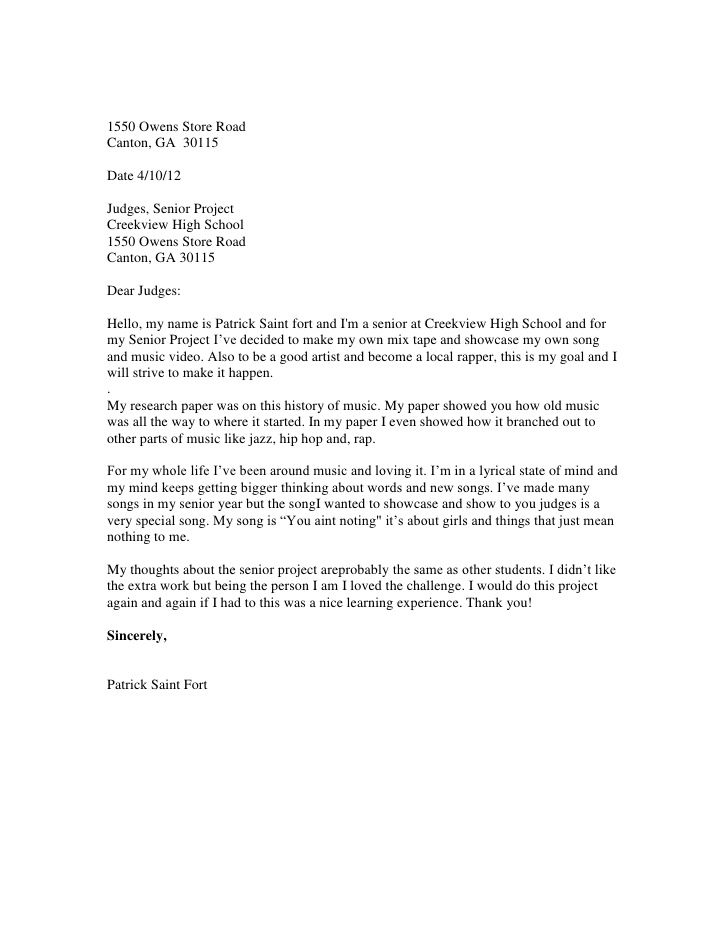How to Write Letter to Judge – If you have a friend, family member, or loved one who is going to be sentenced soon, you may be thinking about what you can do to help him or her. One important thing is to write a letter for your friend to give to the judge at his or her sentencing. A letter of recommendation from someone close to the person will mean a lot to the judge and will go a long way in helping that person receive a more lenient sentence.
There are many things that you need to keep in mind about writing a letter to a judge. You should always remember that this is not your typical letter that you would be writing for any other purpose. The content of this letter will have an impact on someone who can affect the rest of his/her life. If you take short cuts in the preparation of the content, you run the risk of hurting your friend or loved one even more than he/she already has been. This is why you need to know how to write a letter to a judge.
Table of Contents
How to Write Letter to Judge
Part 1 Setting out the Letter
- Write the letter on letterhead, if possible. You want to make sure that the letter looks as professional as possible. One way to do so is to write the letter on professional letterhead, if possible. This letterhead could be the official letterhead of your place of work.
- Date the letter. At the very top of the letter, put the date on which you write the letter. The date should be left-justified.
- Address the judge with the proper address and salutation. Below the date, provide the official name and address of the judge. This will normally be the courthouse in which she presides. For example, you may write:
- Honorable [Judge’s Full Name], United States District Judge, 11 Commerce Street, Dallas, TX 75242.[2] This name and address should be left-justified and written out as you would an address at the top of any letter, below the date, as in this example.
- Below the name and address of the judge, provide the appropriate salutation. The appropriate salutation for addressing a judge is “Your Honor” or “Dear Judge [Judge’s last name].[3]
- Name the defendant. You should write down the defendant’s first name at the beginning of the letter. This can go in the first sentence of the letter or separately between the address and the salutation as follows:[4] RE: [Defendant’s Name].
Part 2 Writing the Content of the Letter
- Write who you are and what your profession is. In the first paragraph of the letter, you should begin by introducing yourself and saying what your profession is. Do not be modest about your credentials, particularly if you are held in high esteem in your community because of your professional or private work. Highlighting your credentials shows the defendant’s reputation and relationships in the community in a positive light. For example, you can write: “My name is ____________________, M.D., a practicing physician and Chief of Staff of ________ Medical Center in ________________, Florida.
- Explain how you know the defendant. Also in the first paragraph, highlight your relationship with the defendant by stating what capacity you know the defendant in. Write how long you have known him and highlight the positive aspects of your relationship (e.g. love, friendship, respect).[6] For example, you can write: “I have been a lifelong friend of ___________. Our families were friends before our births. _______ and I were friends during childhood and have remained close after high school, college, and during our adult lives. I know ______________ about as well as any person other than his immediate family could. I know him to be an industrious, hardworking, family man who is community-minded and other-centered. He has worked hard in his church family and, in fact, worked very hard in his job as __________________________.
- Provide a general statement of support. In the second paragraph, write a general statement of support.[8] Let the court know if the defendant has been candid about his legal problems and has shared those problems with you. If the defendant has admitted his wrongdoing to you, tell that to the judge, as this is seen as a positive. Also say if you are able to help the defendant after his legal troubles are over, perhaps by offering him a place to stay or a job.[9]
- Write a statement on the defendant’s character. In paragraph 3, write a statement on the character traits of the defendant. Highlight positive character traits such as honesty, courage, love,[10] or state why you think the defendant is a family man, a hard worker, or a good parent. Always try to provide examples of how the defendant depicts these character traits and offer any stories or personal experiences you have with the defendant that further highlight these positive traits.
- Add additional information. You may add anything else that you feel will be helpful to the defendant. Make sure the additional material is both concise and informative.
- Write the conclusion. In paragraph 4, conclude the letter by explaining to the judge in your own words that the defendant understands that he has done wrong and expresses regret at his actions. Also state that the defendant would like to learn from this experience and move forward with his life. For a request of leniency, state why you believe that society would not benefit from sending the defendant to prison and how all the parties involved would suffer from such a result.[12] You can write, for example: “I believe that an extended prison term will serve as a tremendous hardship for his wife, who will bear the responsibility of trying to repay the costs of the court case and restitution. I believe that ________’s daughters, one of whom has assumed a large portion of the restitution cost, will be tremendously adversely affected if he is required to go to prison.”
- Avoid improper remarks. You should not make any disparaging comments about the judge, prosecution or other parties involved in the case. Focus on the defendant’s positive traits while at the same time not diminishing the significance or seriousness of the offence.
Tips for an Effective Character Letter

A good character letter can be incredibly helpful to a defendant’s case. Writing such a letter can be a challenge, particularly for those who are inexperienced with the criminal justice system. Read on to learn more about how to write a top-notch letter of support.
Tip One: Setting the Stage
As an initial matter, a character letter should only come from people who actually know the defendant. Form character letters are not persuasive. Instead, each writer should start their character letter by discussing how long they have known the defendant and how they know the defendant. If the person knows the defendant in a professional capacity, the introductory paragraph can explain that relationship.
Tip Two: Tell a Story
The overarching message of a character message should be to tell a story about the defendant. Think about what makes your friend, family member or colleague more than just a “defendant,” and how you can convey that to the court. Doing so can potentially influence the judge’s decision — and help your loved one receive a more favorable sentence.
When writing, avoid simply describing the defendant in terms like “he is loyal.” Instead, tell a story about his loyalty, or how he has been an upstanding member of the community. A story will stand out in the judge’s mind more than adjectives will, making your letter more effective.
Tip Three: Avoid Undermining the Case
It is often tempting for a person writing a character letter to discuss how the defendant isn’t really guilty, how this “isn’t like him,” how the defendant only pleaded guilty to the crime to get a better sentence, or even how the jury got it wrong. Doing this will not help the defendant, and may even negatively impact his case.
Instead, focus on telling a story about the defendant, as described above. Phrases that you can use include saying “I respect that a jury has found _____ guilty of _____ crime. I am writing this letter to offer a more complete picture of who_____ is as a person.” In this way, you can show respect for the criminal justice system while demonstrating to the court that your loved one may deserve a reduced sentence.
Tip Four: Formatting Considerations
Generally, the letters should be typed on 8.5 by 11-inch standard paper. Remember that the goal is to get the court to read your letter, and the easier that you make it for them to read, the better. The only exception is if the letter is written by a child. In that case, a handwritten letter may be more powerful.
Character letters should include your name, mailing address, phone number and email address so that the court can verify your information. They should be addressed either to the Honorable [FIRST NAME] [LAST NAME] or Judge [FIRST NAME] [LAST NAME]. Although you can put the case number on the letter, it is not necessary, as it will be submitted by the lawyer.
Tip Five: Understand a Realistic Outcome
At the end of a character letter, most writers make an “ask” of the court. This can be as simple as requesting leniency, in consideration of the defendant’s exemplary history. However, in some cases, a letter writer may make a sentencing request.
If you plan to make a specific “ask” at the end of your letter, be sure that you understand the potential sentences for the crime in question. In Kentucky, there are mandatory minimums for certain crimes, such as for persistent felony offenders. Check with the attorney before making a request for a specific punishment, in order to maintain your credibility as a writer.
Conclusion
Many of us have been in situations where we need to write a letter to the judge. We may be writing a character witness letter for a friend or family member, or simply want to make sure the judge has all the information pertinent to our case. But many people also do not know how to write such a letter and fear they will “technically” botch it up.
